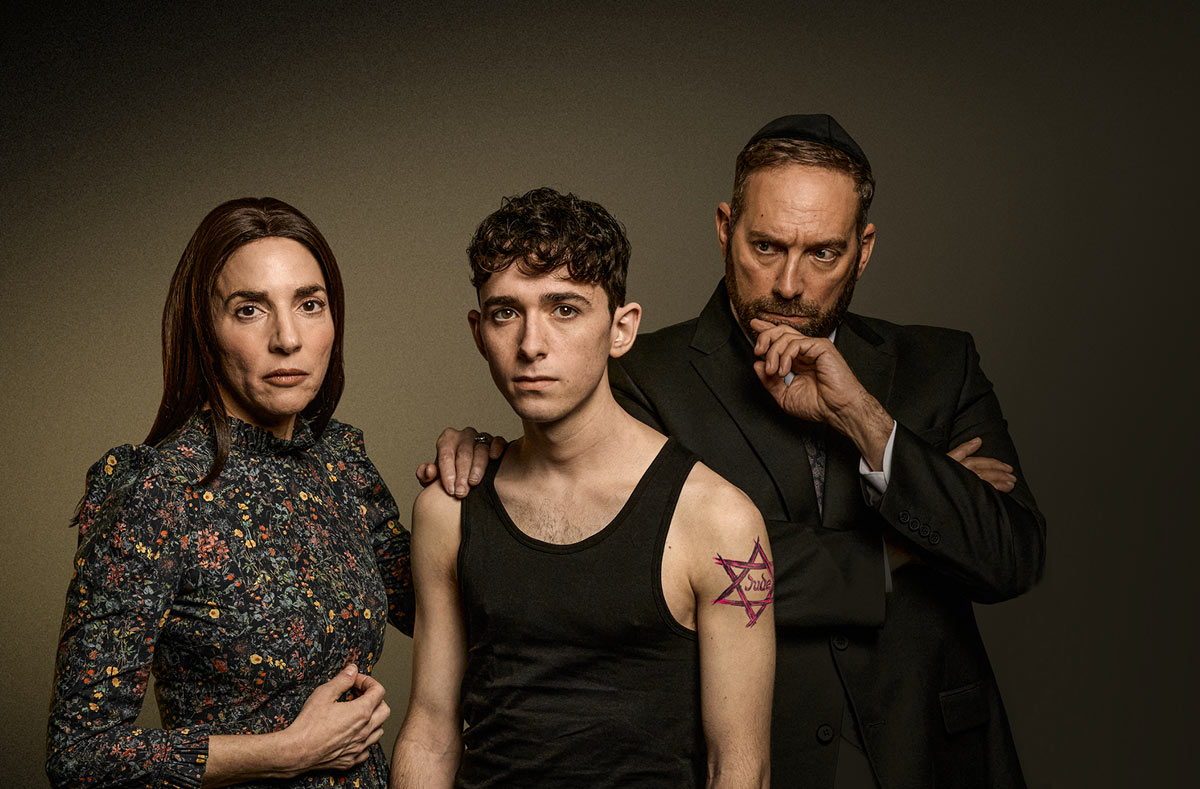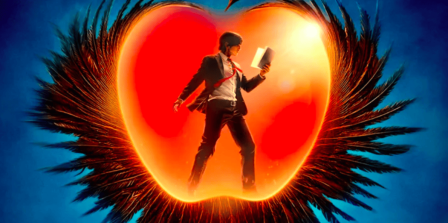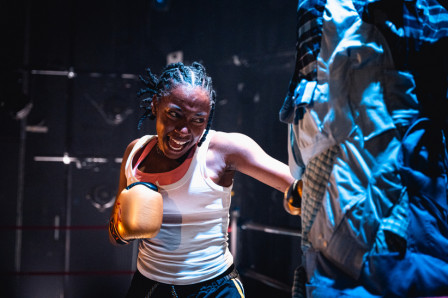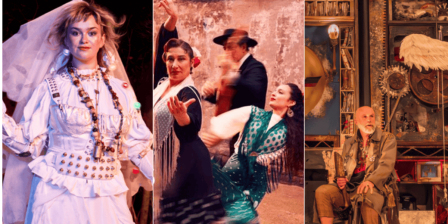Review: FAYGELE at Marylebone Theatre
On his thirteeenth birthday, a young Orthodox Jew realises that he is gay but is rebuked by his father as an embarrassment when he effeminately crosses his legs for a photograph during his bar mitzvah celebrations. The FAYGELE of the title, is Yiddish for a little bird, but is more commonly used as a slur which loosely translates as faggot.
 Clara Francis, Ilan Galkoff, and Ben Caplan. Faygele, Marylebone Theatre.
Clara Francis, Ilan Galkoff, and Ben Caplan. Faygele, Marylebone Theatre.
Ari Freed (Ilan Galkoff) wants to be loved and allowed to be himself. His mother (Clara Francis) feels for his inner struggle, but is dominated by her husband (Ben Caplan) who is unable see beyond his embarrassment, anger and shame, until it is too late. Completing the five member cast are the characters Sammy Stein (Yiftach Mizrahi) as a slightly older gay man who perhaps mirrors the playwright’s own experience of being a gay Orthodox Jew with a wife and children, who felt compelled to break his own chains and live a more honest and open existence. And finally Rabbi Lev (Andrew Paul) who is perhaps the most sympathetic of the characters and who through kindness, empathy and humour is at the centre of efforts to holds the family together as the father and son butt up against each other and embark on a predictably tragic collision course.
We open at the young Ari’s funeral with the actor being picked-up by a spotlight at the edge of the audience from where he addresses us directly with a relaxed ease, almost in denial of the situation. Despite the staging’s somewhat telegraphed notification of the ending, there’s a sincerity in Shimmy Braun’s writing which will strike a familiar chord for Jewish audience members, whilst offering sufficient explanation of tradition and language to render the piece wholly accessible, enlightening and engaging for those not of the faith. In the programme, there’s even a glossary of Yiddish terms used in the play, which offers insight and interest.
Hannah Chissick directs her players with an earnest appreciation for the material and the painful issues and challenges it raises. Slightly less successful, is the set design by David Shields, requiring as it does, the frequent dismantling and reassembly of two benches which when covered in a pall become the coffin which supposedly holds Ari’s body. The glaringly obvious fact that the benches are of a length which can be lifted by one person, but would not be big enough to hold a body, sits downstage centre for a number of scenes and should have been considered and remedied early during in the design/rehearsal process. That visually anomalous gripe aside, the overall production is a sensitive and enjoyable watch, not least because a feel for individual humanity in all its guises, is never lost.
Latest News

 Full cast announced for London premiere of IN PIECES
26 February 2026 at 16:07
Full cast announced for London premiere of IN PIECES
26 February 2026 at 16:07

 DEATH NOTE THE MUSICAL to come to London's Barbican Theatre
26 February 2026 at 11:56
DEATH NOTE THE MUSICAL to come to London's Barbican Theatre
26 February 2026 at 11:56

 Review: BITCH BOXER at Arcola Theatre
26 February 2026 at 07:09
Review: BITCH BOXER at Arcola Theatre
26 February 2026 at 07:09

 Shakespeare Plays to Watch in London in 2026
25 February 2026 at 23:13
Shakespeare Plays to Watch in London in 2026
25 February 2026 at 23:13